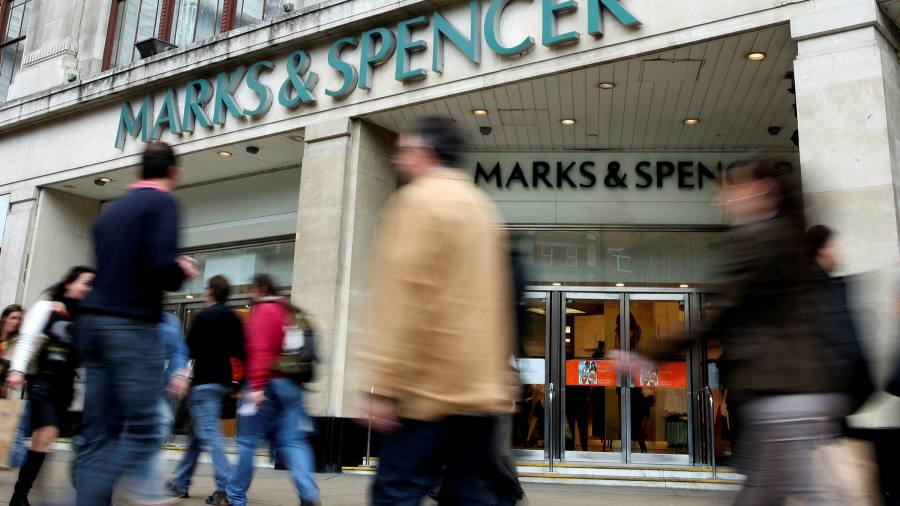[ad_1]
It is often easy to forget that Marks and Spencer is not just a national talking point, like house prices and the royal family, but a fully functional company.
The loudest criticisms of M&S plans to demolish its flagship Marble Arch store in London have been architectural. Proposed redevelopment to add six floors of prime office space on top of a shrunken shop succeeded in irritating both the traditionalists and the work-from-home lobby who believe office supply already outstrips demand.
But amid the eulogies for an imposing example of orthodox interwar classicism, very few commentators have talked about what it means for M&S. It does not help that the company could give no financial details ahead of a completion date of 2027. But then, numbers have very little significance right now. Chairman Archie Norman has had to rejig a restructuring plan on the fly to cope with lockdowns and an accelerated tilt online. The financial year ending March has been a write-off and the coming one is no easier to predict.
Nevertheless, the M&S share price has been showing signs of life. A 15 per cent gain this year is well ahead of Next, Dunelm and Primark owner AB Foods. It is a tentative turnround for a stock widely considered to be a value trap, having underperformed the FTSE 350 General Retail index in all but one of the past 11 years.
Property is one element behind this reversal, with redevelopment of Marble Arch showing both the fraught nature of M&S’s slow-motion reinvention and the potential rewards. About 40 per cent of M&S’s store estate is freehold or long leasehold, with about half of it leased back to the group from a partnership holding company part-owned by the pension scheme. Numis analysts estimate a £1.8bn alternate use value in the portfolio, or nearly 60 per cent of the current market capitalisation.
No one questions that M&S was built for the wrong century. High street sites account for more than half its mainline stores by floor space, with an average of 14 years left to run on its approximately £1bn of lease commitments. But Covid-19 has made explicit to all stakeholders the trade-offs now required. For example, committing to one store on Oxford Street might allow M&S to talk more freely about whether its second, just 10 minutes walk away, might be more useful as a hotel.
Cash released from the legacy estate should pay for M&S’s relocation into suburbs and retail parks. Creating a more click-and-collect friendly store fleet becomes self funding. That might stem the perpetual drain of restructuring costs, which have added up to more than £600m in cash exceptionals over the past seven years.
Meanwhile, away from the high street, M&S is at last delivering. Online sales were drab for years because of logjams and cost inefficiencies at its over-engineered Castle Donington dispatch depot. Covid-19 fixed that. Sales growth accelerated from just 2.5 per cent in the Christmas 2019 quarter to 47.5 per cent for the corresponding period in 2020.
That is just one piece of the M&S jigsaw. There is also a food business that provided 60 per cent of pre-pandemic UK turnover and a joint venture with Ocado that, while negligible in profit terms, could justify about half M&S’s current market value according to analysts. Ocado shares have more than doubled since their deal was announced in February 2019; M&S is down more than 40 per cent.
All of which revives one of the City’s favourite talking points: is M&S a takeover candidate?
Such theories tend to stall on the group’s £4bn net debt burden and the floorspace overlap between the food and general merchandise businesses, which complicates any break-up. But while those hurdles have been shrinking, the attractions of a take-private are getting stronger. Investors have been warming of late to M&S’s blistering online growth, resilient cash flow generation and optionality in its property portfolio. If they lose faith then private equity funds will be ready to pick up the pieces.
[ad_2]
Source link





